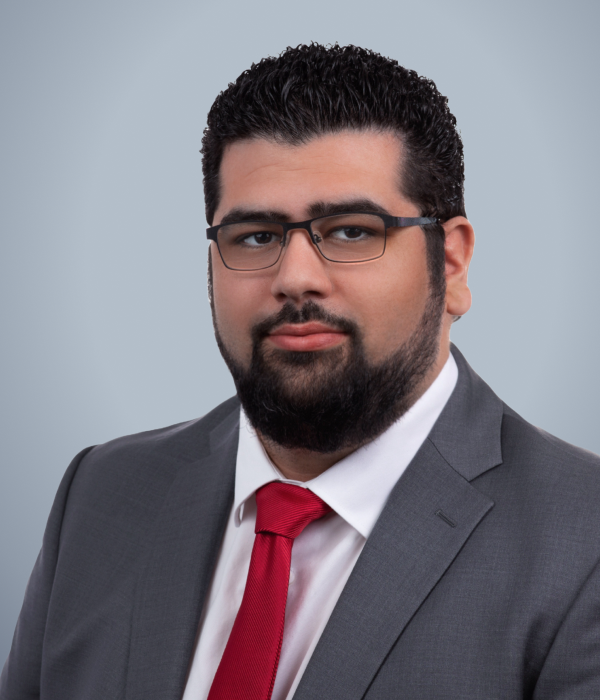
Tacoma HOA Lawyer
Homeowners Associations (HOAs) play a significant role in maintaining the value and appearance of your community. As a homeowner, being part of an HOA comes with responsibilities and benefits that can impact your property and neighborhood.
HOA rules and regulations are in place to ensure that all residents adhere to the same standards, preserving the overall appeal of the community.
If you are a homeowner living in an HOA, you do not have an unlimited right to do as you wish with your property. There are rules that you need to follow and payments that you need to make.
Having to take heed of the restrictions that an HOA makes may put you in conflict with it in certain circumstances. These disputes can become bitter, potentially leading to litigation.
When you are an HOA, there are limits to your authority under Washington law. Not only must you follow the law, but you must also closely track your governance documents.
Accordingly, you must read carefully if you have a dispute with an individual homeowner, as there may be legal consequences for the HOA if you have broken the law.
Both homeowners and HOAs must seek legal advice if there is a conflict. Not every disagreement between a homeowner and an HOA will lead to litigation. There is a way for the two parties to resolve disputes before they go too far, although both will undoubtedly need an HOA attorney if the case must go to court. HOA lawyers can also assist with governance matters, reducing the chances that an HOA may face legal issues.
The experienced Tacoma HOA attorneys at Dickson Frohlich Phillips Burgess take a measured approach, knowing that issues related to one’s home can involve more intense emotions. We work pragmatically with both homeowners and HOAs. Contact us today to learn how we can help you.
Tacoma HOA Guide
- What Is a Homeowners Association?
- What Laws Govern HOAs in Tacoma?
- Common Legal Issues Homeowners Face with HOAs
- Legal Issues HOA Boards and Board Members Face
- How a Tacoma HOA Lawyer Can Help Homeowners
- Why Hire the Tacoma HOA Lawyers at Dickson Frohlich Phillips Burgess
- Tacoma HOA FAQs
- Contact a Tacoma HOA Lawyer Today
What Is a Homeowners Association?

A homeowners association (HOA) is a private organization that manages and maintains a residential community. Typically formed by real estate developers during the initial stages of a neighborhood or condominium project, a board of directors (elected by the homeowners) governs the HOA. Its primary role is to enforce community rules, known as Covenants,
Conditions, and Restrictions (CC&Rs), and to oversee the maintenance of shared spaces such as parks, sidewalks, clubhouses, and landscaping. The advantage of an HOA for homeowners is that a standard governance structure mandates uniformity.
When the HOA works, it can enhance property values and make for a smoother homeownership experience for an individual. Homeowners will not need to worry about tasks that may have otherwise taken their time, including maintenance and upkeep, and how their neighbors may act.
Homeowners who purchase property within an HOA-managed community automatically become members and must pay regular dues or assessments. These fees fund the upkeep of common areas, administrative costs, and community amenities. In exchange, the HOA works to preserve property values and ensure a consistent appearance and behavior throughout the neighborhood.
HOAs can regulate various issues, including exterior home appearance, parking, pet policies, and noise levels. They also have the authority to levy fines or take legal action for rule violations or unpaid dues. While some homeowners appreciate the structure and benefits an HOA provides, others may find the restrictions burdensome. Regardless, understanding how an HOA operates is essential for anyone considering property in a community governed by one.
What Laws Govern HOAs in Tacoma?
Homeowners associations in Tacoma operate under a complex set of Washington statutes. The specific law that applies often depends on when the community was created.
- Washington Uniform Common Interest Ownership Act (WUCIOA), RCW 64.90: This is Washington’s modern and most comprehensive HOA law. WUCIOA automatically governs most HOAs created after July 1, 2018. It sets detailed requirements for association formation, management, budgets, meetings, records access, and foreclosure procedures.
- Homeowners’ Associations Act, RCW 64.38: This older statute governs HOAs formed before July 1, 2018, unless the association has formally elected to adopt WUCIOA.
- Evolving Legal Standards: Importantly, several key provisions of the newer WUCIOA now apply to all HOAs in Washington, regardless of their formation date. These include updated rules for conducting reserve studies, allowing homeowner access to records, and holding open board meetings. Your association must comply with these specific WUCIOA requirements even if it primarily operates under the older HOA Act.
Navigating which statutes and governing documents apply to your specific issue requires a careful legal analysis.
Common Legal Issues Homeowners Face with HOAs
While homeowners associations should preserve property values and maintain community standards, conflicts between homeowners and HOAs are common. These disputes can escalate into legal issues when there is disagreement over rules, enforcement, fees, or governance practices.
- Enforcement of Covenants, Conditions & Restrictions (CC&Rs): One of the most frequent legal issues arises when homeowners believe the HOA is enforcing rules unfairly or inconsistently. For example, the HOA may cite a homeowner for having an unapproved fence, while a neighbor with a similar fence will not face penalties. Discriminatory or selective enforcement can lead to legal claims against the HOA.
- Architectural Control Disputes: HOAs often require approval for exterior changes to a home, such as new paint colors, solar panels, or additions. Denials or delays in approvals, especially if they seem arbitrary or exceed the scope of the HOA’s authority, can result in legal challenges from homeowners seeking to protect their property rights.
- Improper Fines and Assessments: Homeowners sometimes face fines they believe are excessive, unjustified, or imposed without proper notice or due process. Washington law requires that HOAs follow specific procedures for issuing fines or collecting assessments. Failure to do so may render penalties unenforceable.
- Financial Mismanagement and Lack of Transparency: HOAs must legally manage their finances responsibly and provide access to financial records. Disputes can arise when homeowners suspect mismanagement of funds, hidden costs, or a lack of transparency in budgeting or special assessments. These conflicts can trigger demands for audits or even litigation.
- Board Misconduct or Abuse of Power: Some homeowners may feel their HOA board is acting beyond its authority or making decisions that do not reflect the community’s best interests. These acts include failure to hold proper elections, denial of voting rights, or conducting meetings in secret. Homeowners can challenge these actions legally if they violate state law or the HOA’s governing documents.
- Discrimination or Violations of Federal Law: HOAs must comply with federal laws such as the Fair Housing Act and the Americans with Disabilities Act. Issues can arise if the HOA denies homeowners reasonable accommodations or subjects them to discriminatory rules based on race, religion, family status, or disability.
Legal issues with HOAs can be complicated and emotional. Homeowners dealing with such conflicts should review their HOA’s governing documents and consult a lawyer familiar with HOA law to understand their rights and options.
Legal Issues HOA Boards and Board Members Face
Homeowners association (HOA) boards and individual board members hold significant responsibilities, and with those duties come potential legal risks. Even when acting in good faith, boards can face lawsuits or regulatory scrutiny if they overstep their authority, act negligently, or fail to follow state laws and governing documents.
- Breach of Fiduciary Duty: Board members are fiduciaries, meaning they must act in the best interests of the HOA and its members. If they mismanage funds, show favoritism, or make self-serving decisions, people can sue them for breach of fiduciary duty. Even well-intentioned mistakes (such as failing to maintain insurance or neglecting common area repairs) can trigger liability.
- Improper Rule Enforcement: Boards must enforce rules consistently and in accordance with the HOA’s governing documents and Washington law. Selective enforcement, vague rules, or discriminatory application can expose the board to legal challenges and claims of abuse of power or harassment.
- Failure to Maintain Records or Transparency: HOAs must legally maintain certain records and provide homeowners with reasonable access. Failure to comply with open meeting laws, budget disclosure requirements, or document requests can result in legal claims and damage trust within the community.
- Discrimination and ADA/Fair Housing Violations: Boards must be cautious not to violate federal or state anti-discrimination laws. Denying reasonable accommodations or enacting policies disproportionately impacting protected classes can lead to expensive legal battles and government enforcement actions.
How a Tacoma HOA Lawyer Can Help Homeowners
A Tacoma HOA lawyer can be a critical ally for homeowners facing disputes or legal issues with their homeowners association.
Whether the conflict involves unfair rule enforcement, excessive fines, architectural approval delays, or HOA board misconduct, a lawyer can help protect a homeowner’s rights and ensure the HOA acts within the bounds of Washington law and its governing documents.
One of the most valuable services an HOA lawyer provides is reviewing and interpreting the HOA’s Covenants, Conditions & Restrictions (CC&Rs), bylaws, and policies. These documents can be complex and often contain vague or outdated language. A lawyer can clarify whether the HOA’s actions are legal and advise the homeowner on their options for challenging violations or negotiating resolutions.
A Tacoma HOA attorney can also represent homeowners in mediation, arbitration, or litigation if disputes escalate. They can defend against wrongful fines, seek injunctions to prevent unlawful HOA actions, or file claims for breach of fiduciary duty, discrimination, or violations of the Washington Uniform Common Interest Ownership Act (WUCIOA).
Ultimately, a knowledgeable HOA lawyer levels the playing field between homeowners and association boards, helping to resolve conflicts efficiently and enforce legal protections while preserving the homeowner’s investment and peace of mind.
A Tacoma lawyer experienced in homeowners association (HOA) law can be an essential resource for HOA boards seeking to operate effectively, comply with Washington law, and avoid costly disputes.
Complex legal frameworks govern HOAs, including the Washington Uniform Common Interest Ownership Act (WUCIOA), and they must follow these governing documents. An HOA lawyer helps ensure that board decisions, policies, and enforcement actions align with these requirements.
An HOA attorney can assist with drafting, updating, and interpreting governing documents such as CC&Rs, bylaws, and rules and regulations to ensure they are legally sound and enforceable.
This task is critical when the HOA wants to adopt new policies or amend existing ones, such as restrictions on short-term rentals or guidelines for property modifications.
HOA lawyers advise boards on fiduciary duties, financial management, open meeting laws, and record-keeping obligations. If a dispute arises—whether with a homeowner, vendor, or another entity—an attorney can represent the HOA in negotiations, mediation, or litigation, helping to resolve conflicts efficiently while minimizing liability.
Why Hire the Tacoma HOA Lawyers at Dickson Frohlich Phillips Burgess
Hiring the Tacoma HOA lawyers at Dickson Frohlich Phillips Burgess means working with a legal team that understands the complexities of homeowners association law and delivers practical, results-driven solutions. With decades of combined experience serving HOAs and homeowners across the Puget Sound region, their attorneys are well-versed in Washington’s evolving legal landscape, including compliance with the Washington Uniform Common Interest Ownership Act (WUCIOA).
Whether your HOA needs help drafting or amending governing documents, resolving disputes with homeowners, or ensuring board decisions are legally sound, Dickson Frohlich Phillips Burgess provides the insight and advocacy you need. They also represent individual homeowners facing overreach, discrimination, or improper enforcement from their association.
Their firm takes a personalized, efficient approach to resolving issues while minimizing legal risk and protecting property values. When you choose Dickson Frohlich Phillips Burgess, you are choosing experienced Tacoma HOA lawyers dedicated to protecting your rights and strengthening your community.
Tacoma HOA FAQs
Can my HOA really foreclose on my Tacoma home?
Yes. Under Washington law, an HOA can place a lien on your property for unpaid dues and assessments.
If you do not pay the amount owed, the HOA has the authority to foreclose on that lien, which can ultimately lead to a forced sale of your home.
The process has strict notice requirements, and you have options to fight it, making legal advice crucial.
What is a reserve study?
A reserve study is a long-term financial planning tool. A professional analysis determines the current condition of the community’s major shared assets (like roofs, siding, and roads) and estimates their remaining useful life and replacement cost.
Washington law requires most HOAs to conduct regular reserve studies to ensure they set aside enough money to pay for future major repairs and replacements, preventing the need for sudden, large special assessments on homeowners.
How much can an HOA fine a homeowner in Washington?
Washington law requires that fines be “reasonable.” The amount and the circumstances for levying a fine must be outlined in the HOA’s governing documents (the CC&Rs or rules).
WUCIOA also imposes strict notice requirements, giving the homeowner a right to a hearing before the board to contest the violation and the proposed fine. An HOA cannot simply issue fines without following its own procedures and state law.
Do I have a right to attend my HOA board meetings?
Yes. Washington law mandates that most HOA board meetings be open to all homeowners. The board must provide notice of meetings, and homeowners have a right to listen to the proceedings.
The law also carves out time during meetings for homeowners to make comments and speak to the board on relevant issues. The board may only go into a closed or executive session for specific sensitive topics, such as consulting with legal counsel or discussing personnel matters.
Contact a Tacoma HOA Lawyer Today

Whether you are an HOA that needs legal assistance or a homeowner who is in a dispute with your board, the Tacoma real estate lawyers at Dickson Frohlich Phillips Burgess are here to help.
With deep knowledge of Washington HOA law and a commitment to practical, effective solutions, our team provides trusted counsel for homeowners and associations alike. Whether you need help interpreting governing documents, resolving conflicts, or ensuring legal compliance, we are ready to advocate for your interests.
Contact Dickson Frohlich Phillips Burgess online today or call us at (253) 572-1000 to schedule a consultation and get the legal support you need to protect your property and peace of mind.
Client Testimonial
“I have never been so frustrated trying to work with my bank. I hired Dickson Law Group to represent me and in the manure of just a couple months he was able to get everything fixed. Now due to their efforts my family and I were able to buy a new house and we could not be happier. I highly recommend Dickson Law Group and if I ever need a lawyer again they will be my first call.” – Jeremy Haskins (Google Review)
Dickson Frohlich Phillips Burgess – Tacoma Office
909 A Street, Suite 900
Tacoma, WA 98402
P: 253-572-1000























